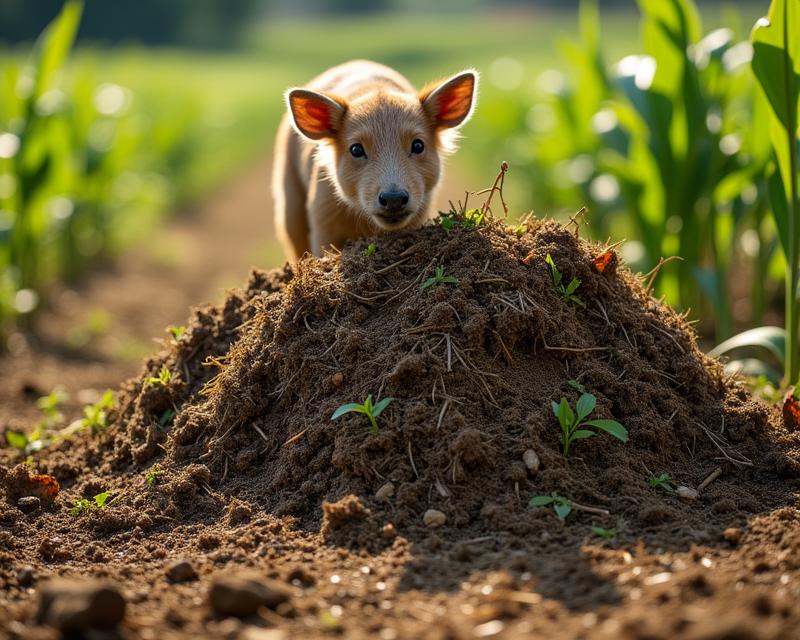Composting: Farm's Best Fertilizer
Publish in Sustainable Farming el 28/06/2025 22:31
Composting: Farm's Best Fertilizer
Composting is a cornerstone of sustainable farming practices, offering a natural and cost-effective way to enrich your soil and reduce waste. It's the process of controlled decomposition of organic matter, transforming it into a nutrient-rich humus that benefits your crops and the environment. Instead of sending valuable resources to landfills, composting allows you to recycle them back into your farm system, creating a closed-loop system that promotes soil health and reduces reliance on synthetic fertilizers.

The Benefits of Composting
The advantages of composting are numerous. Firstly, it improves soil structure, enhancing aeration and water retention. This leads to healthier root growth and increased plant vigor. Secondly, compost is a slow-release fertilizer, providing essential nutrients to plants over time, reducing the risk of nutrient runoff and pollution. It also boosts beneficial microbial activity in the soil, creating a thriving ecosystem that naturally suppresses plant diseases. Finally, composting significantly reduces the amount of organic waste sent to landfills, contributing to a more sustainable agricultural system.
What to Compost
A successful compost pile requires a balance of 'green' and 'brown' materials. 'Green' materials are nitrogen-rich, such as vegetable scraps, fruit peels, coffee grounds, and fresh grass clippings. 'Brown' materials are carbon-rich, including dried leaves, straw, shredded paper, and wood chips. Aim for a ratio of approximately 2:1 or 3:1 brown to green materials. Avoid composting meat, dairy, oily foods, and diseased plants, as these can attract pests and create unpleasant odors. Regular turning of the pile is crucial for aeration and decomposition. A well-maintained compost pile should heat up significantly, indicating active microbial activity.
Getting Started
Starting a compost system on your farm is easier than you might think. You can build a simple compost pile directly on the ground, use a commercially available compost bin, or invest in a more sophisticated tumbling composter. Consider the size of your farm and the volume of organic waste you generate when choosing a composting method. With a little effort and attention, you can transform farm waste into a valuable asset, boosting your crop yields and contributing to a healthier planet. Regularly monitor your compost pile – adjusting the moisture level and turning it as needed – will ensure a consistent supply of high-quality compost for your farm.





